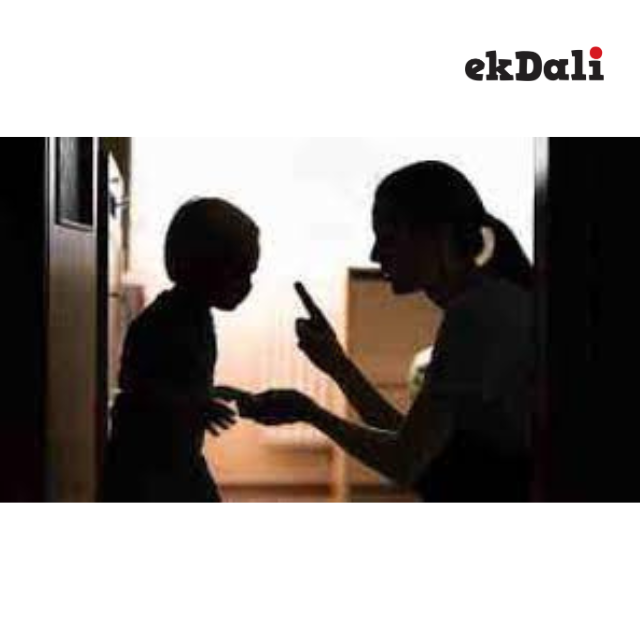It's one thing to deal with a child's tantrum at home, but dealing with bad behaviour in public presents other obstacles. Real-life solutions are provided here.
It's difficult to remain cool when your child behaves badly, but try to remember that she most likely intends no harm. A toddler cannot yet judge the reactions to her actions—she has no idea that picking her nose during Grandma's birthday meal is considered disrespectful.
"Toddler parents should brace themselves for some awkward moments."
That's when Mom and Dad get in, especially if their child's activities might damage others' feelings or perhaps physically injure someone. Setting boundaries can be difficult, especially for someone whose energy and curiosity appear limitless, but it can be done successfully and gently.
Don't blame your child's unpleasant behaviour on poor parenting, and try to ignore any glares from other adults, which are unavoidable if your youngster is, for instance, tasting grapes at the grocery store. "Your obligation is to your child, not bystanders," Teitelman explains.
Experts in child behaviour provide their advice for coping with hypothetical but all-too-common scenarios.
1. Your 6-year-old son's birthday has arrived. As his grandma watches him unwrap his present, he sets it aside and wonders what else is there.
You shouldn't put too much stock in this circumstance. Because young children cannot empathise with others, they express themselves—and they are brutally honest! Explain the present to your youngster and afterwards apologise to his granny. (And if she's expecting a huge embrace and a heartfelt thank you, she may have high expectations.)
"Start teaching your child to think of others' feelings, even if it goes against his impulses," says S. Mark Kopta, Ph.D., chairman of the psychology department at the University of Evansville in Indiana and coauthor of Right vs. Wrong: How to Raise a Child With a Conscience. You can admonish him briefly at the moment, but when everyone has left, attempt role reversal. Place your youngster in his grandmother's chair and have him open the present with the same expression he had. Ask your kid how he would react to such an answer.
2. You're in the mall with your three-year-old kid. She asks you to take her to the toy store, then demands on an expensive present. She throws the mother of all tantrums when you say no.
Taking a youngster to a toy store without first establishing limitations is like to going across a minefield: expect an explosion. "Prevention is key," says George Scarlett, Ph.D., a Tufts University child development expert and author of Trouble in the Classroom: Managing Behaviour Problems in Young Children.
Scarlett recommends discussing the shopping excursion with your child before you go to the mall so she knows what to anticipate when you arrive. You may add, "We're going to the mall, and there will be a toy store there." We can go in today, but we won't be able to buy anything."
What if you didn't plan ahead of time and your child had a severe tantrum in the mall? "Remove the stage lights and draw the curtain," says Kyle Pruett, M.D., clinical professor of child psychiatry at Yale University School of Medicine. Take her out of the store, kicking and screaming, and engage with her as little as possible until she calms down. "Keep your words and chastisement to a minimum—she won't hear you anyway," advises Dr. Pruett. After the tantrum, you can say something like, "This was difficult for both of us." Let's have some fun now."
3. You take your kindergartener to a birthday celebration, and he starts bossing about the other kids.
First, consider if this is usual behaviour. Determine whether your youngster is hungry, weary, or unwell, as these situations might cause him to act out. If you've witnessed similar behaviour in the past, avoid the desire to intervene: The other partygoers may be your child's finest instructor in this circumstance. If you do not interfere immediately, he will learn from the other kids that he cannot manage them. They'll ignore him and find other youngsters who share his interests.
4. Your 2-year-old is obnoxious about his Duplo blocks. Whenever other toddlers attempt to play with them at your house during mother-child playgroups, he pushes them away.
Don't get too fired up—your child is simply exhibiting typical toddler behaviour, as any mother of a toddler would attest.
Toddlers are still learning how to share. Scarlett recommends politely telling your child that he must take turns with the other kids or diverting his focus away from the blocks to reduce conflict. You might want to have two sets of blocks around the next time to avoid a fight. Though it's fine to lay the framework for sharing now, don't anticipate miracles. "It takes four to five years for children to really grasp the concept that sharing is good," Scarlett explains.
5. Your four-year-old draws attention to a stranger's physical attractiveness, causing the other to seem uncomfortable and insulted.
If your child is talking loudly, respond quietly s Try to respond to questions in a straightforward, honest manner.
"Is that man a monster?" for example, may be responded, "No, he's a man." If the subject is intricate, such as "Why is that man so big?" it is acceptable to answer "I don't know" or "That's just the way his body is made."
"He was asking a question, looking for some reassurance—not trying to upset anyone," says the parent. "And he's probably unaware that those around him can hear his voice," L"If you're certain the man overheard and is offended, you should apologise briefly yourself."
























